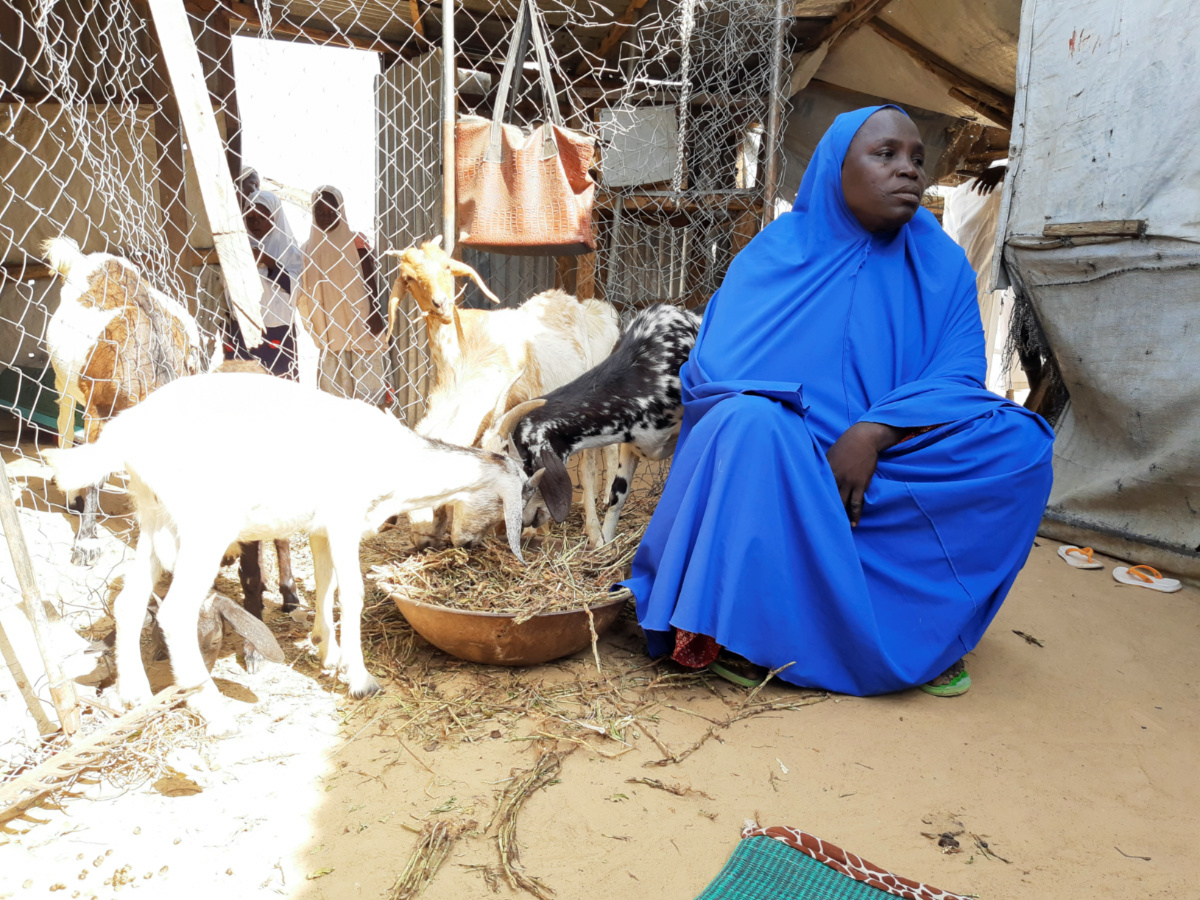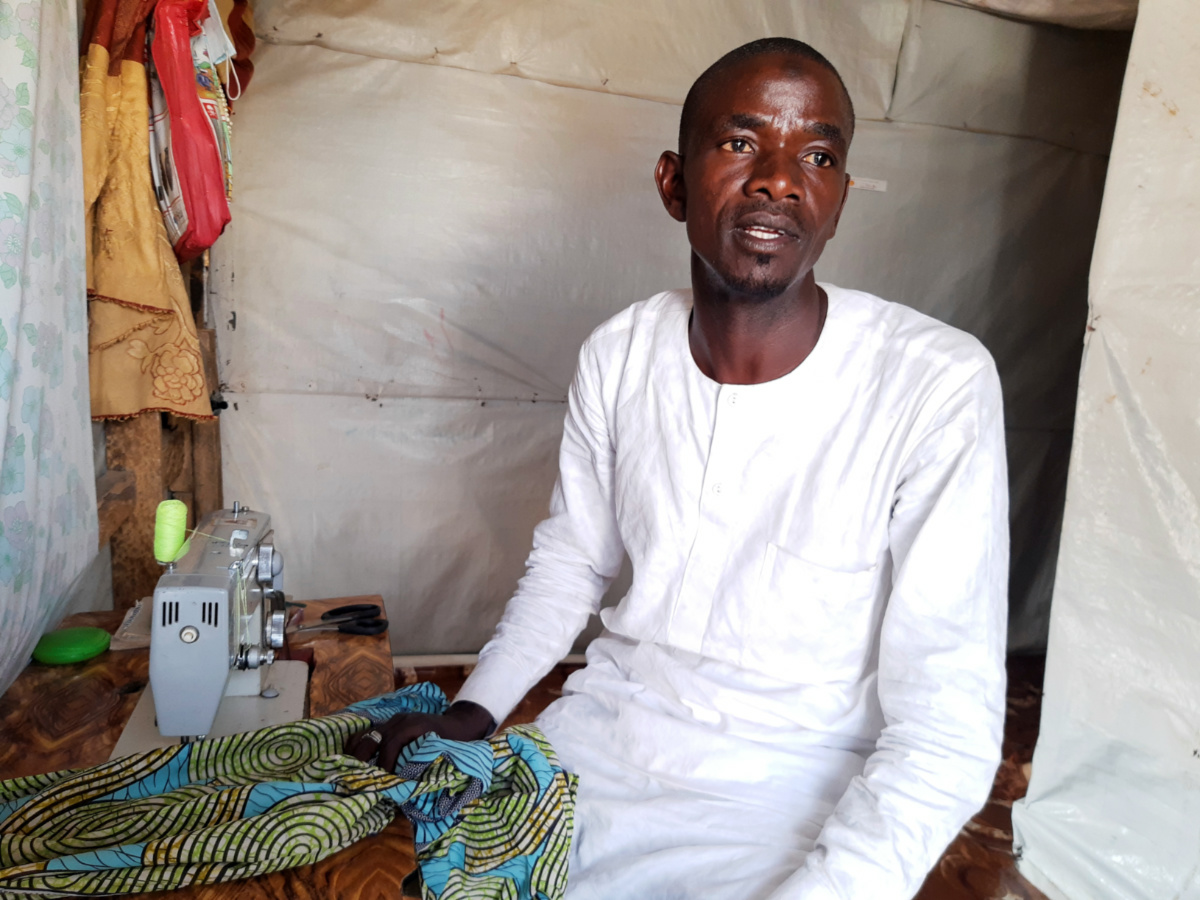Maiduguri, Nigeria
Reuters
Hauwa Ahmadu Kukuda rakes straw from the top of the two-room shack she shares with eight children. Goats jostle for it as the children crouch next to tarp-covered walls.
Outside, row after dusty row stretches for miles in the Bakassi camp in Maiduguri, the capital of Nigeria’s north-eastern Borno state, which houses some 30,000 people displaced by 12 years of Islamist insurgency.

Hauwa Kukuda, an internally displaced woman, sits next to her goats during an interview with Reuters at an IDP camp in Maiduguri, Nigeria, on 5th November. PICTURE: Reuters/Libby George.
For Kukuda, 42, Bakassi has been home for the seven years since Boko Haram militants killed her husband in rural Gwoza. Life is tough, but she is terrified to leave.
“There no peace in my hometown,” Kukuda said.
Kukuda, like the nearly 300,0000 others in Maiduguri’s camps, might not have a choice.
Borno state plans to close all Maiduguri camps by the end of the year, citing improved security and the surrender of thousands of Boko Haram fighters in recent months.
Residents rely on the government for food, so it can easily force them out. But militant attacks across Borno continue, stoking their fears about returning home.
Data from the Armed Conflict Location & Event Data Project, showed 2,532 people had died in attacks in Borno by the end of November, compared with 3,184 in 2020. In recent months, Islamist militants killed a general, a commanding officer and a lieutenant. Borno Governor Babagana Zulum’s own convoy came under fire in the town of Malam Fatori in October.
“They can say it’s not as bad, but at no point in time has it been that there is a cessation of hostility,” said Idayat Hassan, director of the Abuja-based research organization the Centre for Democracy and Development. “There are hardly any weeks where there is actually no attack.”
We rely on our readers to fund Sight's work - become a financial supporter today!
For more information, head to our Subscriber's page.
A Zulum spokesman said the governor “only approves and encourages safe, voluntary and dignified resettlement.” He said they would support anyone who wished to live elsewhere in Maiduguri instead of returning home.
“The most important thing is to ensure safe and dignified living for (internally displaced people) through productive means of livelihoods. Relying on donor support is not sustainable,” spokesman Isa Gusau said.
Bakassi camp residents said Zulum offered them cash to leave – 100,000 naira ($US244) for men, 50,000 naira for women.

Ibrahim Salihu, a 42-year-old internally displaced man, speaks during an interview with Reuters at an IDP camp in Maiduguri, Nigeria, on 5th November. PICTURE: Reuters/Libby George
Abba Rawa, 50, said he returned home to Marte last year at Zulum’s urging. Security is so bad that residents cannot go more than a kilometre outside town – a problem for residents who farm or fish for a living. He said they are totally reliant on government.
“We live in hunger,” he said, surrounded by Bakassi residents discussing their plans.
Privately, aid workers doubt the camps will quickly shut. But some have already left, and the workers worry that they cannot help those in insecure rural areas.
Hassan said that while the camps are imperfect, forcing them to return home is risky, particularly if they cannot farm or fish.
“There should be no compulsion,” Hassan said. “Everything that should be done should actually be based on the protection of civilians.”






